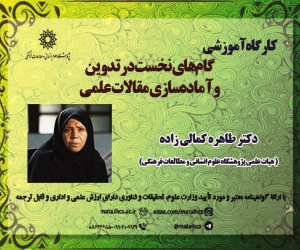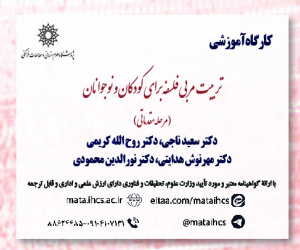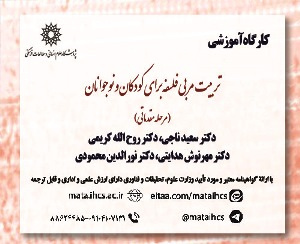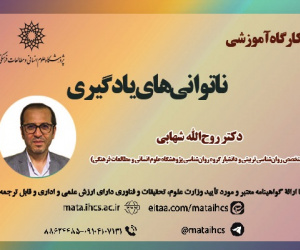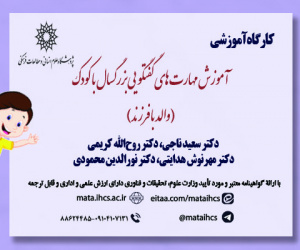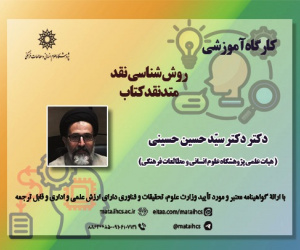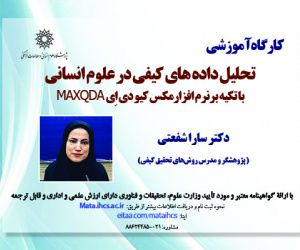تأثیر شبکه سازی حسابداری مدیریت بر توسعه پایدار سازمان ها، تحلیل نقش تعدیلگر کیفیت سیستم اطلاعات و فرهنگ نتیجه گرا و نوآوری (مقاله علمی وزارت علوم)
درجه علمی: نشریه علمی (وزارت علوم)
آرشیو
چکیده
شبکه سازی حسابداری مدیریت، یکی از ابزارهای اشتراک دانش میان حسابداران مدیریت است که دانش در اختیار مجموعه فعالان حسابداری مدیریت را در داخل و خارج از سازمان به طور مشترک بکار می گیرد. این تحقیق، با هدف بررسی تاثیر شبکه سازی حسابداری مدیریت بر اقدامات حسابداری مدیریت استراتژیک، نقش مستقیم و تعدیلگر فرهنگ نوآوری، کیفیت سیستم اطلاعات و فرهنگ نتیجه گرا را در این رابطه مورد بررسی قرار می دهد. جامعه آماری تحقیق شامل کارکنان ستادی و مدیران شرکت ایران خودرو در استان خراسان رضوی است که تعداد 127 نفر از آنها به شیوه غیراحتمالی در دسترس انتخاب شده و پرسشنامه های تحقیق میان آنان توزیع گردید. یافته های تحقیق با استفاده از مدلسازی معادلات ساختاری نشان داد که هریک از متغیرهای شبکه سازی حسابداری مدیریت، کیفیت سیستم های اطلاعات حسابداری و فرهنگ نتیجه محور تاثیر مثبت و معناداری بر اقدامات حسابداری مدیریت استراتژیک دارند، در حالی که تاثیر فرهنگ نوآوری بر روی این اقدامات منفی بدست آمد. همچنین، هیچ یک از متغیرهای کیفیت سیستم های اطلاعات حسابداری، فرهنگ نوآوری و فرهنگ نتیجه محور قابلیت تعدیل رابطه بین شبکه سازی حسابداری مدیریت و اقدامات حسابداری مدیریت استراتژیک را ندارند.The Impact of Management Accounting Networking on Organizational Sustainable Development: Analyzing the Moderating Role of Information System Quality, Results-Driven Culture, and Innovation
IntroductionResearch indicates that strategic management accounting practices can enhance company performance. However, many studies report disappointing implementation rates for these practices, surprising researchers who anticipated broader adoption. This discrepancy arises from three main limitations in existing research. First, most studies focus on only one or two strategic management accounting practices. Second, few studies analyze a broader set of practices, and those that do often fail to identify the factors influencing their implementation. Third, most research has tested simplified models that assume independent influences on strategic management accounting practices, with limited exploration of complex interrelations among variables. Moreover, shared norms and values within organizations can foster an innovation-oriented culture, characterized by the pursuit of innovative ideas, exploration of new opportunities, and acceptance of higher risks. Such organizations are more likely to embrace new ideas and innovative practices with less resistance. Conversely, organizations with a results-oriented culture tend to implement practices that enhance performance and help achieve set goals. Several researchers argue that high-quality information systems facilitate the adoption of effective management accounting practices, contributing to sustainable organizational development. This study aims to investigate whether management accounting networking, the quality of information systems, and an innovation/result-oriented culture affect the use of strategic management accounting methods at Iran Khodro Company for sustainable development. Materials and MethodsThis research is descriptive and non-experimental, employing a survey method for data collection and analysis. The study population consists of staff and managers at Iran Khodro Company in Razavi Khorasan province, totaling 189 individuals. Using Cochran's formula for limited populations, a non-probability sample of 127 managers was selected. The research utilized a standard questionnaire adapted from Hadid & Al-Sayed (2021), comprising 8 questions on management accounting networking, 5 questions on accounting information systems, and 10 questions (5 for each component) measuring organizational culture (innovation and results orientation). Additionally, 12 questions assessed the implementation of various strategic management accounting techniques, including competitor performance evaluation and balanced scorecard methods. The questionnaire's validity was evaluated through construct validity, convergent and divergent validity, while reliability was assessed using Cronbach's alpha and composite consistency index. FindingsThe results reveal that management accounting networking, the quality of accounting information systems, and a results-oriented culture significantly impact strategic management accounting measures and organizational sustainability. However, the innovation culture negatively affected these measures. Furthermore, none of the quality variables—accounting information systems, innovation culture, or results-oriented culture—moderated the relationship between management accounting networking and strategic management accounting measures. Therefore, the first, second, and fourth hypotheses were accepted at a 0.05 error level, while the remaining hypotheses were not. Discussion and ConclusionThis study evaluated the impact of management accounting networking on strategic management accounting measures, considering the direct and moderating roles of innovation culture, information system quality, and results-oriented culture. The findings highlight the significant positive influence of management accounting networking, information system quality, and results-oriented culture on strategic management accounting measures and sustainability. In contrast, the innovation culture exhibited a negative effect, aligning with the findings of Gholami (2017), Salehi Farhadpour (2016), Hadid & Al-Sayed (2021), and Basco & Scapens (2020). This suggests that while an innovation culture promotes creative problem-solving, it may also increase the demand for advanced financial analysis tools. Additionally, the study found that the quality of information systems, innovation culture, and results-oriented culture did not moderate the relationship between management accounting networking and strategic management accounting practices. This contradicts previous studies by Hadid & Al-Sayed (2021), Gholami (2017), and Salehi Farhadpour (2016), indicating a lack of significant interaction between management accounting networking and the quality of information systems. This implies that these two factors operate independently within the company, without enhancing each other's effectiveness. Moreover, the lack of significant interaction between organizational culture dimensions and management accounting networking suggests that the latter has not influenced attitudes toward innovation or results orientation. Consequently, knowledge sharing within the management accounting network has not improved the organizational culture. To address these issues, it is recommended that managers focus on fostering risk-taking, flexibility, and encouraging innovative ideas. Expanding the network of management accountants could enhance the quality of accounting information systems. Sharing knowledge within this network can improve awareness of the importance of structured and unstructured data in performance analysis. To strengthen the innovation culture, it is essential to share innovative ideas among network members and form working groups to develop new solutions for strategic challenges. Lastly, sharing past performance results within the management accountant network can help avoid mistakes made by other business units, ultimately supporting the transition toward sustainable development.
